Fibremaxxing: The Gut-Friendly Lifestyle Trend You Need in 2025
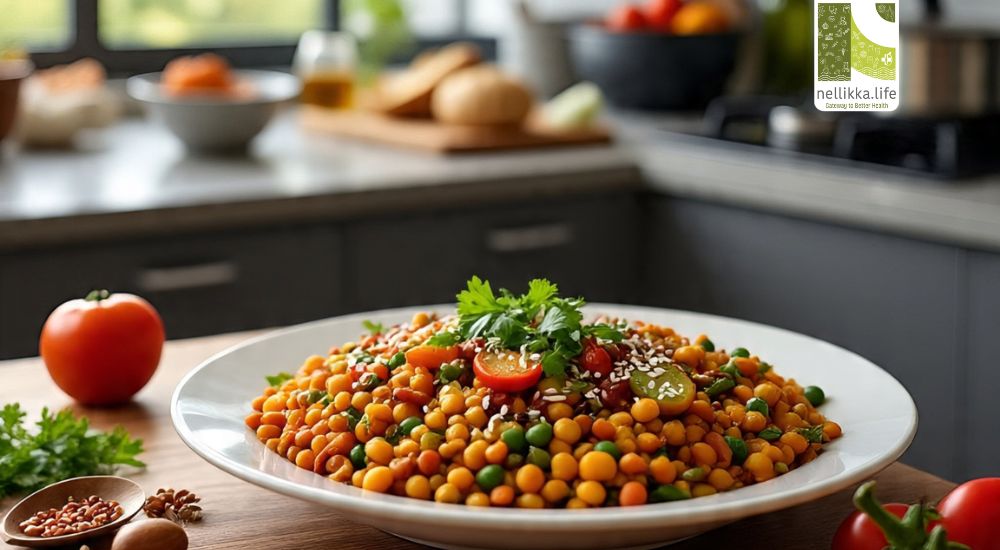
Introduction
In a wellness world obsessed with protein, one quiet hero is making a powerful comeback—dietary fiber. From improving digestion to controlling blood sugar and reducing inflammation, fiber is being hailed as the ultimate nutritional powerhouse.
Welcome to the lifestyle trend of Fibremaxxing—a growing global (and now Indian) movement focused on maximizing daily fiber intake to unlock long-term health benefits.
Let’s explore why this matters more than ever—and how you can fibremaxx your meals with easy Indian recipes.
What Is Fibremaxxing?
Fibremaxxing is the practice of intentionally increasing your daily fiber intake, often aiming above the minimum daily recommendations, to achieve better:
- Gut health
- Metabolism
- Satiety & weight control
- Heart and sugar regulation
- Mental clarity (via gut-brain connection)
In short, it’s not about crash diets—but adding more plant-based, fiber-rich foods to your lifestyle in delicious, sustainable ways.
Why Is Fiber So Important?
According to experts, fiber is the missing link in most modern Indian diets, especially those dominated by polished rice, refined flour, and ultra-processed foods.
Here’s what fiber does for you:
- Feeds good gut bacteria (prebiotic effect)
- Regulates bowel movement and prevents constipation
- Helps control blood sugar by slowing glucose absorption
- Keeps you full longer, aiding in weight management
- Lowers cholesterol levels
- Reduces risk of colon cancer and heart disease
Recommended Daily Fiber Intake
- Women: 25–28 grams/day
- Men: 30–38 grams/day
(Source: Indian Council of Medical Research & WHO)
But most Indians barely get 15g/day—half of what’s needed.
Signs You May Be Low on Fiber
- Frequent constipation or irregular stools
- Constant hunger between meals
- Sudden blood sugar spikes or crashes
- Bloating, heaviness after eating
- Low energy and brain fog
How to Start Fibremaxxing the Indian Way
1. Swap & Upgrade
- Replace white rice with brown rice, millets, or quinoa
- Choose whole grain chapatis over refined flour parathas
- Switch to multigrain bread or oat dosa for breakfast
2. Boost Every Meal
- Add flax seeds, chia seeds, or psyllium husk (isabgol) to smoothies or buttermilk
- Include fiber-rich raw salads before lunch/dinner
- Add a handful of beans or legumes to your soup, upma, or poha
3. Snack Smart
- Ditch chips. Go for roasted chana, fox nuts (makhana), or fruit slices with peanut butter
- Try homemade trail mix with almonds, dates, raisins, and sunflower seeds
Easy High-Fiber Indian Recipes
1. Vegetable Millet Khichdi
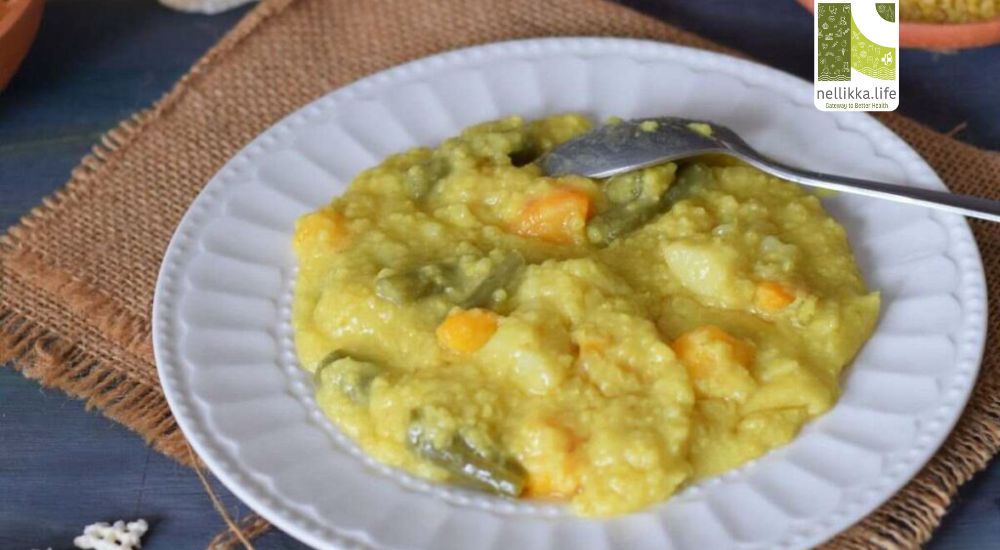
Ingredients: Foxtail millet, moong dal, carrots, beans, peas, turmeric, cumin
Fiber Power: 12–14g per serving
→ A comforting, gluten-free, high-fiber twist on a classic!
2. Stir-Fried Greens & Sprouts Subzi
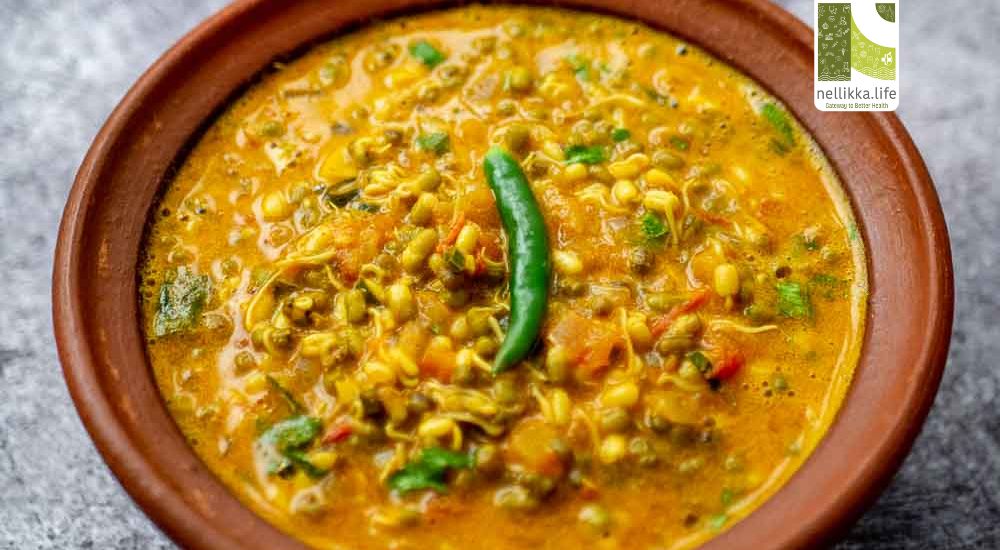
Ingredients: Palak, methi, sprouted green gram, garlic, mustard seeds
Fiber Power: 10g per bowl
→ A mineral-rich side dish that pairs well with rotis or rice.
3. Mixed Dal & Vegetable Paratha
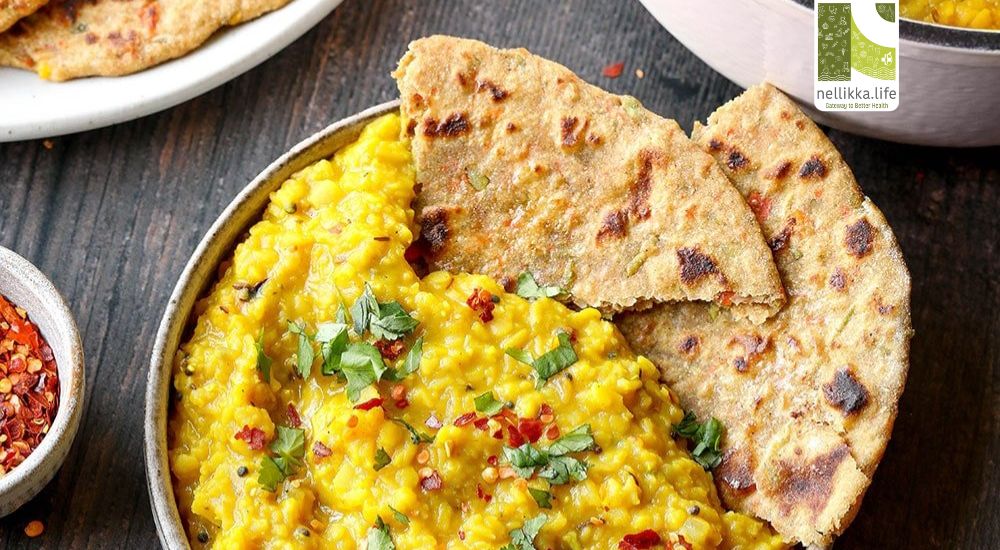
Ingredients: Leftover dal, grated carrot/beetroot, whole wheat flour
Fiber Power: 9g per paratha
→ Add curd and you’ve got a protein+fiber packed lunchbox option!
4. Chia & Banana Overnight Oats
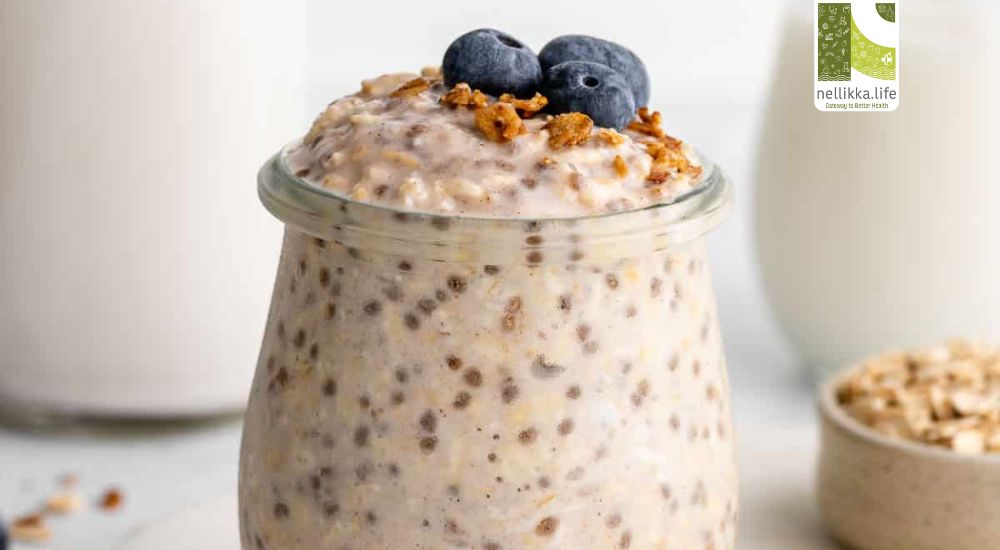
Ingredients: Rolled oats, chia seeds, banana, almonds, milk (or vegan milk)
Fiber Power: 11g per bowl
→ A grab-and-go breakfast that’s sweet, satisfying, and gut-friendly.
5. Prebiotic Buttermilk Smoothie

Ingredients: Buttermilk, banana, flaxseed powder, cinnamon
Fiber Power: 7g per glass
→ Cooling and gut-soothing—perfect for summer mornings.
Side Effects & Precautions
- Start slow: Suddenly increasing fiber can cause bloating or gas. Build up over 1–2 weeks.
- Hydrate well: Fiber absorbs water—drink enough to aid digestion.
- Diverse sources: Mix soluble and insoluble fibers for best results.
Fibremaxxing isn’t a fad—it’s a return to nutrient-rich, natural eating. As Indian kitchens rediscover millets, legumes, and greens, this trend beautifully aligns with our culinary roots and holistic wellness goals.
So the next time you plan a meal, ask yourself:
How can I add more fiber to this?
Your gut will thank you.
References :
1. National Institutes of Health on Fiber
2. ICMR Dietary Guidelines for Indians
3. The Lancet – Dietary fibre and prevention of noncommunicable diseases
4.WHO: Diet, Nutrition and the Prevention of Chronic Diseases




